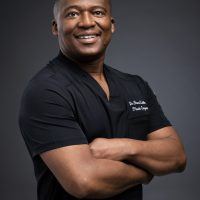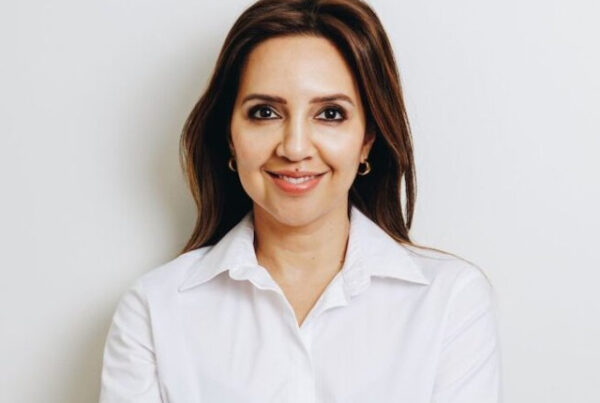Breast cancer is the number one cause of cancer among women in many countries around the world. Fortunately, oncoplastic breast surgery offers women the chance to have their breast/s reconstructed at the same time that the cancer is removed.
In the past, surgery to remove breast cancer did not focus on how the breasts would look after the procedure. Rather, it focused solely on the medical outcome of removing cancerous tissue. This is something that has caused many women great discomfort and embarrassment, adding to the distress of their cancer diagnosis. This has changed, and oncoplastic breast surgery offers women hope.
What is Oncoplastic breast surgery?
Oncoplastic breast surgery was born out of a need for better cosmetic results after breast cancer surgery. It involves the removal of the breast cancer using plastic surgery techniques and the simultaneous reconstruction of the defect created when the cancer is removed.
When the tumour is removed with adequately wide cancer-free margins, the plastic surgeon then uses specialized reconstructive techniques to reshape and contour the breast. It can also involve procedures to achieve breast symmetry and the reconstruction of the nipple and areolar when necessary.
Women who require a mastectomy can also opt for immediate breast reconstruction. Some women who would previously have been urged to undergo a mastectomy could elect to rather have oncoplastic breast surgery.
Some women with early-stage breast cancer may be able to have the cancer removed with a simple breast reduction or breast lift procedure. A reduction in breast volume has added benefits as it allows for a more uniform dose distribution of postoperative radiotherapy.
Women with sagging or droopy breasts can expect an oncoplastic mastopexy to give them a more uplifted and shapelier breast. For large and heavy breasts an oncoplastic breast reduction will result in a more comfortable size and shape.
In smaller breasts, plastic surgery techniques such as perforator flap surgery or microsurgery is used to achieve a good cosmetic outcomes with breast-conserving surgery.

otnaydur/shutterstock
A better post cancer outcome
The surgical care of breast cancer has evolved over the years. It has gone from radical and extensive removal of all breast tissue to less aggressive removal of the affected lump or segment of breast tissue.
This type of surgery is known as breast-conserving surgery. However, poor cosmetic results are often experienced after standard breast-conserving surgery. This is due to things such as an unfavourable tumour to breast size ratio. It is also due to the tumour being located in an unfavourable position in the breast.
With oncoplastic techniques we enjoy far better cosmetic outcomes as we place the incision in an area remote from the cancer and use plastic surgery techniques to improve the cosmetic outcome, preventing excessive scarring and deformities.
Further good news is that oncoplastic breast surgery followed by radiation therapy is comparable to total mastectomy with respect to recurrence and survival. And for women who have already undergone breast cancer removal surgery and who now suffer from abnormal breast appearance, there is the option of undergoing delayed oncoplastic breast surgery to restore the breast to a more natural appearance.
Closing comments
Oncoplastic breast surgery offers wonderful results. In fact, my patients are often surprised and delighted to learn that breast cancer surgery can improve the shape and appearance of their breasts. This can be an unexpected silver lining for an otherwise worrying diagnosis and surgery.
However, it is important to highlight the fact that not all breast cancers are the same. As such, oncoplastic breast surgery is not always suitable in all situations.
About the author

Dr Bruce Lelala
Dr Bruce Lelala is a plastic surgeon at The Specialist Laser and Cosmetic Institute (SCIN) in Hyde Park with a fellowship in microsurgery and oncoplastic breast surgery from the Nottingham Breast Institute in the UK.
He holds the following qualifications:
- A Bachelor of Science (BSc) from the University of the Western Cape (UWC)
- A Bachelor of Medicine and Bachelor of Surgery (MBCHB) from the University of Kwa-Zulu Natal (UKZN)
- A Diploma in Anaesthetics (DA) from the Colleges of Medicine of South Africa (CMSA)
- A Postgraduate Diploma in Business administration (PDBA) from Gordon Institute of Business Science (GIBS)
- A Masters in Medicine (MMEd) from the University of Cape Town (UCT)
- A Fellowship in Plastic and Reconstructive Surgery from CMSA.
In 2019 Dr Lelala was appointed by the USA-based NGO, Operation Smile. He is part of the internationally credentialed cleft surgeons for the organization. Dr. Lelala has been involved in cleft surgery missions on the African continent and abroad.
He is also a member of the Society of Rhinoplasty Surgeons of South Africa (SORSSA).
Dr Lelala will be undertaking a fellowship in microsurgery at one of the world’s leading institutions of reconstructive surgery in Nottingham, United Kingdom. This training will equip Dr Lelala with skills in microsurgery, enabling him to perform intricate and life-transforming operations.



![women [longevity live]](https://longevitylive.com/wp-content/uploads/2020/01/photo-of-women-walking-down-the-street-1116984-100x100.jpg)










